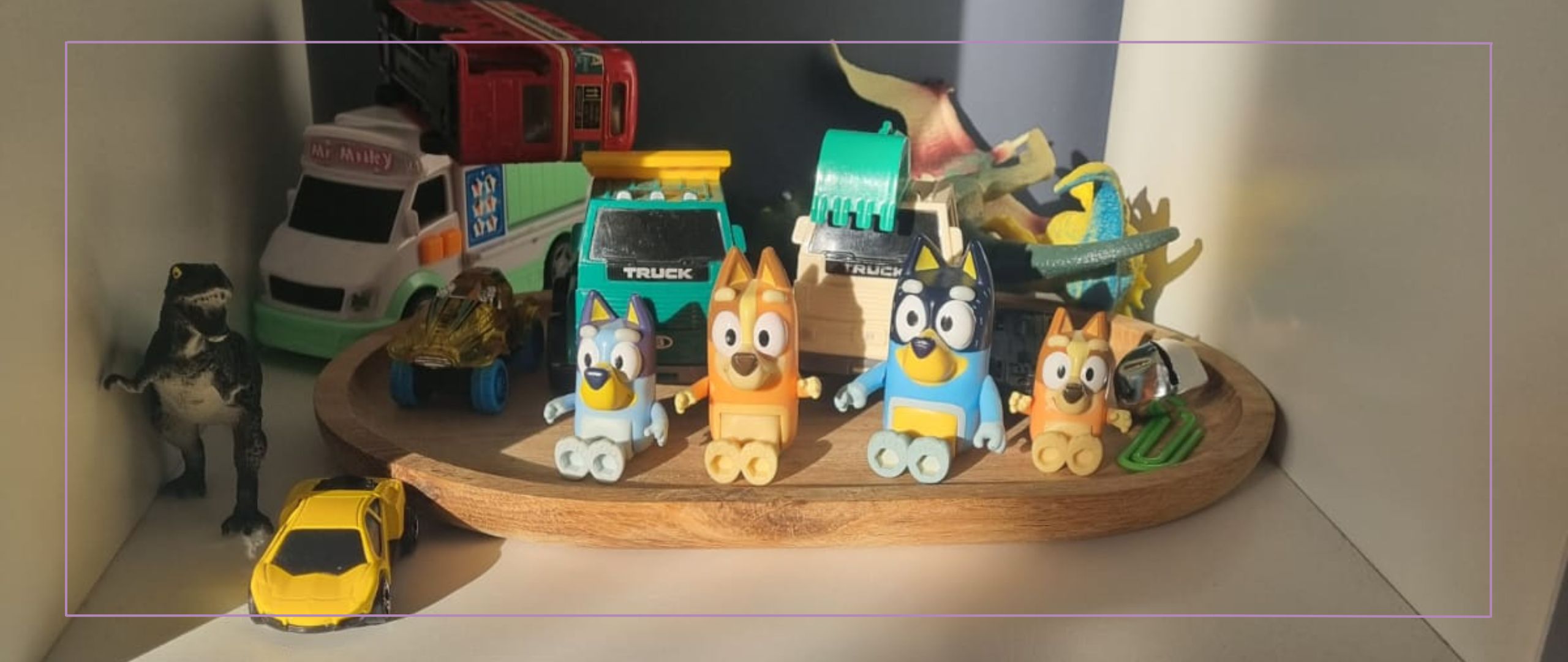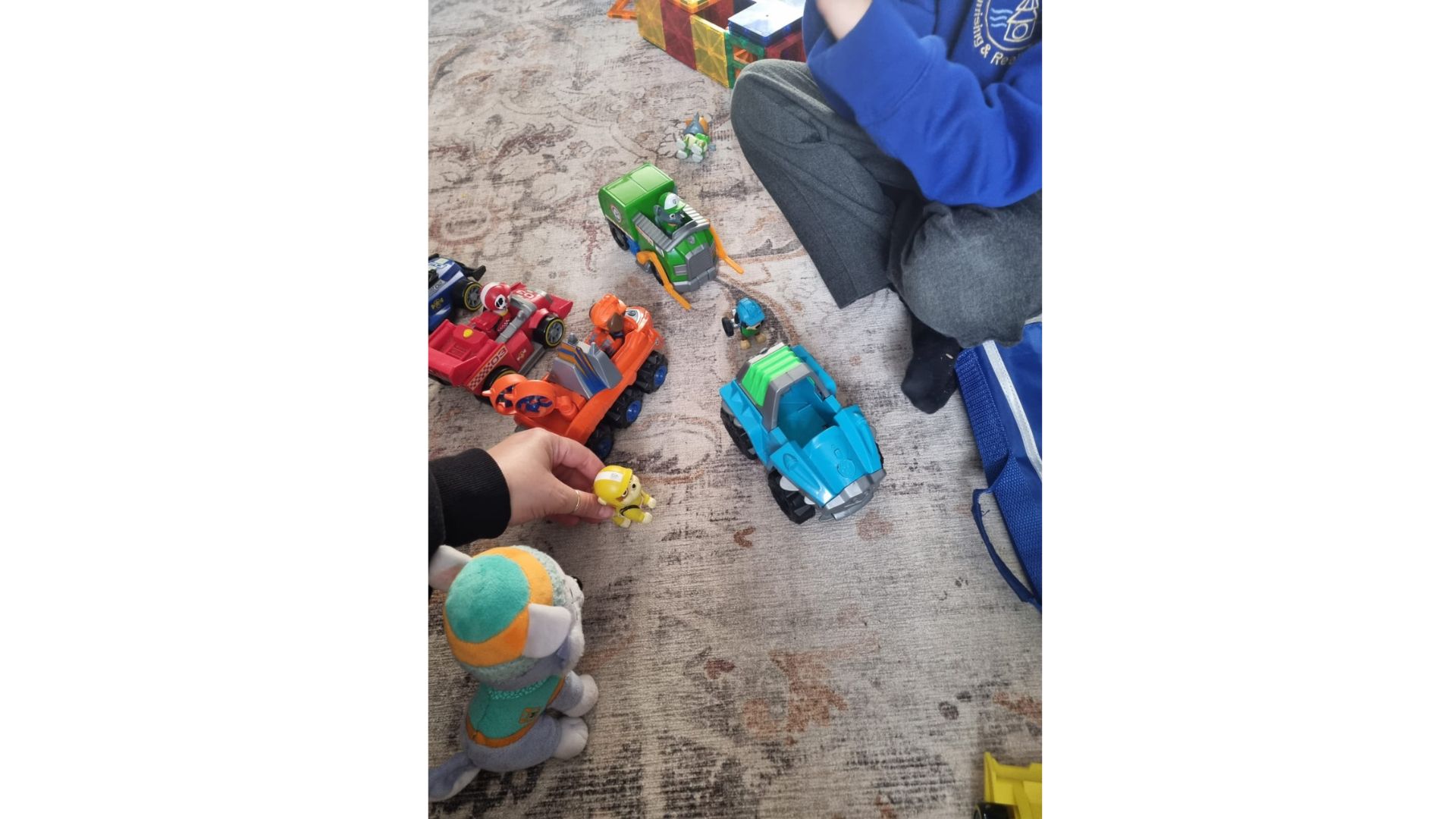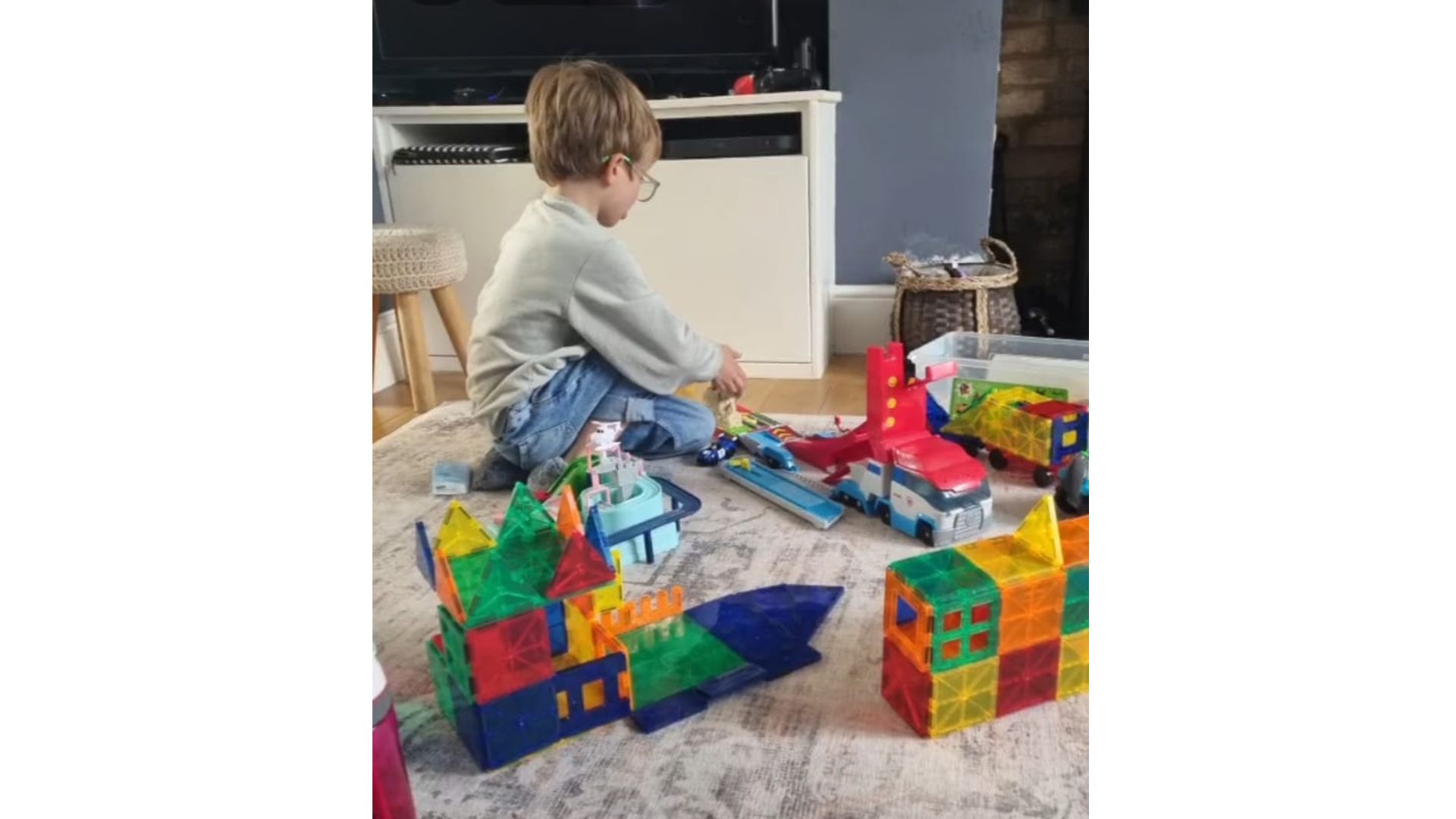I hate playing with my 4-year-old, am I a bad parent? Two experts answer all
Spoiler: You're not alone, we confirmed it with the experts
Sarah Ockwell-Smith

Parenting advice, hot topics, best buys and family finance tips delivered straight to your inbox.
You are now subscribed
Your newsletter sign-up was successful
I hate playing with my 4-year-old. There I've said it out loud, I just massively struggle to feel engaged when imagining Paw Patrol in a world of dinos. And, thankfully it seems I'm not alone.
Disclaimer; I love my kid. So much, and I try. I really try to want to play, but it's a struggle. And while I know I'm not alone, I've been met with knowing nods from mums and dads, I feel guilty. Am I a bad parent? I mean it's not all play I can't stand, he does have a collection of some of the top toys out there - Quadrille marble run anyone? Not to mention the Funny Bunny board game or his Nintendo Switch (and if you're interested we have a great Nintendo Switch Vs Oled article to help you know what to buy) - both excellent to play with. And, his Yoto Player - when I can convince him to sit and listen is also a hit (be sure to check out our Yoto Vs Tonie to get a real breakdown).
No, my kryptonite (apart form the fact that I regret gentle parenting) is role play, 'Mummy you be Rubble' and when I agree and pick up the yellow-clad Paw Patrol pup, and hesitate for a tenth of a second, I'm met with demands of 'Why aren't you playing mummy'... BECAUSE I DON'T WANT TO, I want to shout back. I know toys are kid's tools and it's really important, I do, I've bought all the best toy storage to make those tools accessible but, it's just not for me.
I speak to author and mother of four Sarah Ockwell-Smith and child expert and nanny Kirsty Ketley for their advice and thoughts on what most parents think but never say out loud. Keep scrolling to see what the experts say when it comes to hating play time...
I hate playing with my 4-year-old
As with many parents these days, the social media comparison is rife and I focus a lot on what I'm not doing right as a mum. And playing with my kid is top of that list. When he says, “Mummy play with me,” my answer is almost always, “Okay let me just… clean this/put this away/check that” And before I know it, the day is over, he's in bed and I'm left beating myself up because I let him down. Child expert, Kirsty Ketley tells me; "Often, children look to you to play with as they want to spend time with you though, this time needs to be free from distractions and solely focused on your child and you may find that you enjoy their play more. You can, of course, be in charge of what you do, so that you can ensure that you are doing something with your child that you enjoy too."

Me reluctantly playing Paw Patrol
1. Why do I hate playing with my kid?
Top line; it's boring, you're tired, it's repetitive, you're exhausted, being a 'playful parent' wasn't modeled to you as a child so you feel awkward doing it, and you are utterly drained. Parenting expert and author, Sarah Ockwell-Smith tells me; "It's exhausting being a parent in society today, trying to meet the needs of children while working to try to keep a roof over their heads and food on the table." Well, she's not wrong here.
Sarah adds; "These two things leave little space for anything else and perpetual exhaustion doesn't make it easy to be playful parents. Second, many of us would have been raised by Authoritarian parents, who believed that children should obey and comply and be left to entertain themselves quietly so as not to bother adults. If we weren't raised with playful parents then the concept of playing with children will be alien and uncomfortable to us."
Parenting advice, hot topics, best buys and family finance tips delivered straight to your inbox.
Kirsty Ketley adds; "Often parents hate playing with their kids because, very simply, they find it boring and repetitive. Children like to play the same game over and over again - adults not so much!"
When I talk of my mum guilt Kirsty reassures me I should never feel bad about not wanting to play with my child, before adding; "although you will [feel like this] anyhow because that's how we are wired and the look of disappointment on their face, or the tears that may ensue when you've declined to be a pupil in the class, or have a teddy shoved up your jumper to pretend to give birth for the billionth time (personal triggering memories!) makes you feel like you are the worst parent in the world. But you are not."
2. Am I a bad parent for feeling this way?
"No, of course not!" Sarah tells us. "I'd say you're a pretty good parent if you've managed to keep your child alive, you don't yell at them all the time, and you love them lots. Playing with them is the icing on the cake. Still, there are other ways to connect too that can feel more natural - for instance, baking or gardening together, making pieces of art, going for walks in nature, singing, dancing, kicking a ball around the local park, swimming, and even gaming online with older children. Finding something that works for you both is a key element."
3. 'You're doing it wrong mummy!'
This is the ultimate, the one line that makes me feel like I have an out, permission to stop playing. Like 'Am I? Oh ok then, I'll stop.'... it's a cop-out and not one I'm very proud of. I know how important play is, it's a crucial aspect of child development, fostering bonding, imagination, and cognitive skills. But do I have to get involved? Especially when I never do it right anyway?
I'm not going to lie, it can be disheartening to be told you're wrong. However, it presents an opportunity for growth and learning in the parent-child relationship, by acknowledging your child's perspective and explaining that there are different ways to play. Encourage open communication and problem-solving - in a calm and neutral tone.
- Foster collaboration - Try saying, "Let's find a way we can both enjoy the game. What are your ideas?" This approach promotes compromise and empowers the child to contribute to the play experience.
- Model flexibility - Try saying, "Let's try it your way and see how it goes. We can switch back and forth and explore different ways."
- Maintain positivity - Try saying, "Let's remember that the most important thing is spending time together and having fun, regardless of who is 'right' or 'wrong'."
4. How can I say no to playing with my kid?
Try saying yes sometimes Sarah Ockwell-Smith suggests. "... Especially when you're not uber exhausted and you do have a bit of time, but if it's something you really struggle with playing (often the make-believe games or re-enactments of children's TV shows are the hardest!) then it's OK to suggest an alternative, or ask the child to suggest another option.
Kirsty advises; "Encouraging independent play is an important part of child development and so I would advise that rather than constantly saying no, put boundaries in place. So, this could be "I will play with you for 20 mins, but then I have to do XYZ or there won't be tea/clean house/I'll be hungry etc". When your child has played independently by themselves, acknowledge it with praise and reinforce that they had fun playing independently."

She adds; "There's no harm in telling your child you don't enjoy the game that they want to play, and suggest modification. This can help them understand compromise, which is hugely helpful when they are playing with their peers." Though, bad news, it's important that you model compromise and allow them some of the say, some of the time too.
5. How can I say yes and really engage with the play?
"This comes down to understanding why you struggle [to engage with play]." Parenting expert and author Sarah Ockwell-Smith tells us. "Try asking and answering honestly these three questions;
- Do you need to try to lighten the load a bit to leave you space to be able to decompress in order to play more?
- Do you need to think about your own childhood and what you would maybe like to do differently with your own child?
- Is it more a case of feeling self-conscious?
In which case working on your own self-esteem would be a great idea. Again though, finding a middle ground, something creative and fun that you both love is key. Sarah shares plenty on this subject on her blog, here are her top five ways to really embrace playing with your kid;
- View play as a ‘must have’, not ‘nice to have’ - We are so busy that playing with our children can often be at the bottom of our to-do lists. View play as important is the way forward. 15 minutes playing with your child - with no distractions - is infinitely more valuable than 15 minutes sending emails, or vacuuming the carpet.
- Play at your child’s level, not your own - Basically, don't interfere. Watch and observe how your child plays and join in. It doesn’t have to make sense to you and it doesn’t have to have an obvious teaching moment.
- Reconnect with your inner child - Dig deep and remember what you enjoyed at their age – did you like skipping/jumping ropes, jumping in muddy puddles, or painting with your fingers? You’re not too old for those things now.
- Make everyday chores more playful - Invent a bedtime song, a tidying-up dance, or a family race to get shoes on when it’s time to go out. Play can be incorporated into every aspect of family life. It doesn’t have to be a specific play time to make something more fun.
- Get into role-playing and drama - Remember how fun it was to play schools, shops, or mums and dads as a child? Role-playing/acting out different characters is such a lovely way to play with children, it’s also a great way to encourage them to do things they don’t usually want to do (e.g: pretending to be a dinosaur hunter when brushing their teeth, or a grooming chimpanzee when brushing hair).
Main takeaway for me is, we may be the adult but we're always learning, and when we pay attention our kids can be our greatest teachers. Yes I still hate playing with my kid, but as is our job as parents, sometimes we have to put their needs before our own. Now, were did I put Rubble...
Related features:
Video of the Week:
Stephanie has been a journalist since 2008, she is a true dynamo in the world of women's lifestyle and family content. From child development and psychology to delicious recipes, interior inspiration, and fun-packed kids' activities, she covers it all with flair. Whether it's the emotional journey of matrescence, the mental juggling act of being the default parent, or breaking the cycle of parenting patterns, Stephanie knows it inside out backed by her studies in child psychology. Stephanie lives in Kent with her husband and son, Ted. Just keeping on top of school emails/fundraisers/non-uniform days/packed lunches is her second full-time job.
- Sarah Ockwell-SmithTween and teen expert and author